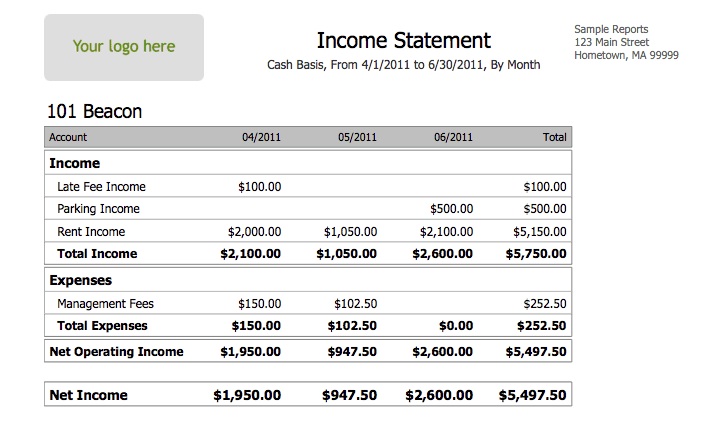Why Every Landlord Needs a Rental Property Income Statement
Why Every Landlord Needs a Rental Property Income Statement
Blog Article
Understanding the financial health of a rental house is required for any landlord seeking to increase returns. One of the utmost effective resources for monitoring that is an money statement. Also called a gain and reduction statement, that rental property income statement snapshot of a property's income, costs, and overall profitability.
An revenue statement isn't only for big corporations—it's similarly useful for landlords managing one or multiple rental properties. Here's how it works and why it's essential for monitoring profitability.

Breaking Down the Revenue Statement
An revenue record contains three primary ingredients:
1.Revenue (Income)
This area contains all sourced elements of money produced from the property. For a landlord, this an average of suggests hire income paid by tenants. Nevertheless, it can also capture extra revenue revenues such as parking charges, pet charges, or washing facilities.
2.Expenses
Expenses in house management may vary from fixed expenses like house fees and insurance to variable costs like preservation, repairs, and utilities. This area also accounts for mortgage funds (if the home is financed), HOA fees, and actually marketing charges for attracting tenants.
3.Net Revenue
Once overall expenses are taken from full revenue, landlords may establish whether their property is profitable. A positive result shows profitability, while an adverse determine items to a possible reduction that needs immediate attention.
Why Revenue Statements Are Critical for Landlords
Having an revenue statement offers a few critical benefits for landlords.
•Analyzing Profitability
The money record provides a straightforward way to see whether your property is generating a profit or charging you money. That perception is critical for making data-driven decisions.
•Pinpointing Cost-Saving Possibilities
By itemizing costs, landlords may pinpoint areas wherever charges could be reduced. For instance, if utility costs are unusually high, it could be value investigating energy-efficient upgrades.

•Checking Economic Traits
Money claims with time disclose performance trends. Landlords may track how profitability fluctuates with seasonality, market problems, or unforeseen improvements like tenant turnover.
•Promoting Economic Objectives
Whether likely to reinvest in the home or save yourself for future growth, revenue claims support outline financial strategies. In addition they make it more straightforward to secure financing if required, as lenders frequently involve proof of profitability.
Ultimate Ideas
For landlords, an income record is more than an accounting tool—it's a gateway to better financial management. By often compiling and reviewing money statements, landlords can gain a further understanding of their hire property's cash flow and profitability, ensuring long-term success in the competitive real estate market. Report this page